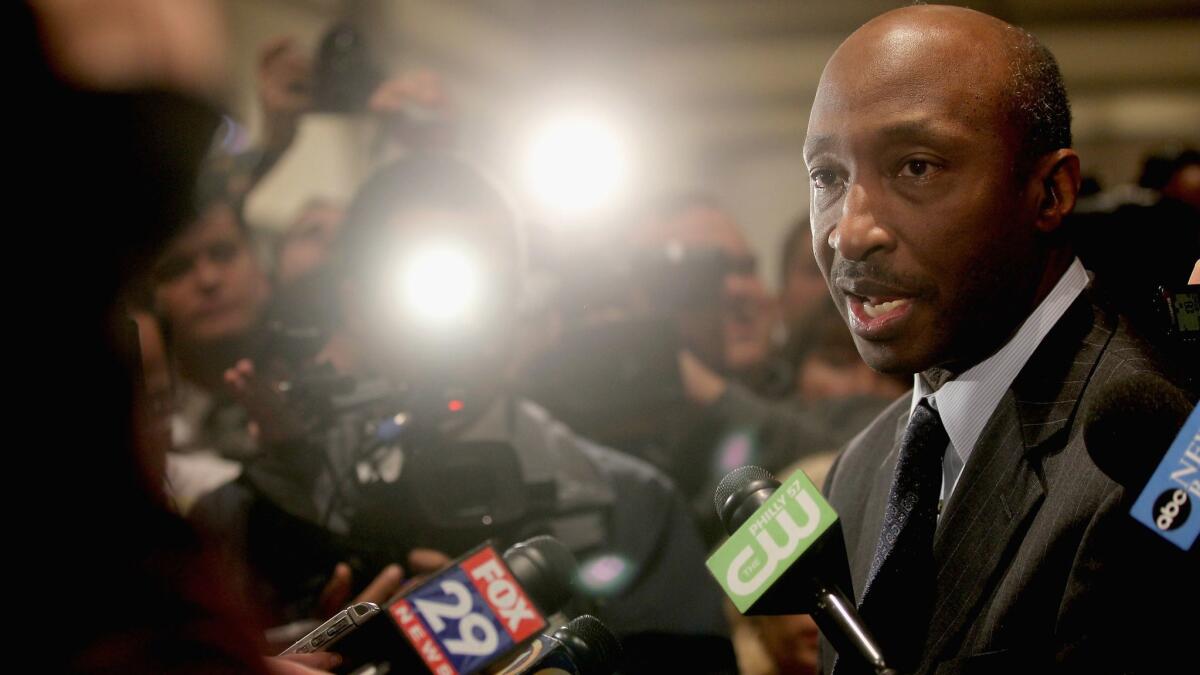Fewer companies are forcing CEOs to retire when they hit their golden years

At Merck, the retirement age isn’t what it used to be — for the CEO, at least.
On Wednesday, the pharmaceutical giant said it was rescinding its policy requiring its chief executive to retire at the age of 65, announcing that its chairman and chief executive, Kenneth Frazier, had agreed to stay on beyond December 2019, when he will turn 65.
In doing so, the company added to a long downward trend in the companies that have mandatory retirement ages for their top executives, said experts on corporate governance and executive succession. Fueled by stronger corporate governance standards, overall strength in corporate performance in recent years and a possible shift in public perception of what an appropriate retirement age should be, fewer companies today have a default requirement that corporate executives should step away when they hit their mid-60s.
Historical trend figures aren’t easy to come by, but Matteo Tonello, a managing director at the Conference Board, said that in the early 2000s, about a third of companies had a mandatory retirement age for their chief executives. Yet in its 2017 report of CEO succession practices, just 19% of manufacturing companies, 23% of financial services companies, and only 7% of the non-financial, non-manufacturing public companies that were surveyed required their CEOs to retire at a certain age.
Sometimes, a mandatory retirement age is lifted to give the current CEO a little more time in the job, potentially clearing the way for a successor to prepare. In June 2017, manufacturing giant 3M said its board of directors was waiving the mandatory retirement age of 65 years for its then-CEO, Inge Thulin, and then named a successor, chief operating officer Michael Roman, earlier this year.
Such policies were originally put in place when corporate boards were much more insular, often hand-picked by the chief executive, when there was far less oversight from directors over the CEO’s performance.
“These bylaws were primarily introduced in the ’90s in response to some empirical evidence of declining performance of CEOs” who stayed in the job for a long time, Tonello said. “Over the past 20 years, corporate governance has been strengthened and completely transformed. The need for these policies has clearly declined.”
In a published statement, Merck’s lead director, Leslie Brun, said “CEO succession has been our top priority, and removing the mandatory retirement policy enables the board to make the best decision concerning the timing of that transition.”
Frazier, a former general counsel for Merck who became CEO in 2011, has presided over a more than doubling of the company’s stock price during his tenure and overseen the company’s shift in resources toward its leading immunotherapy drug for cancer, Keytruda. He also gained attention as a moral voice in corporate America last year when he withdrew from the president’s manufacturing council after Trump didn’t immediately and explicitly denounce the white supremacists who organized the rally in Charlottesville, Va., that resulted in violence. Other CEOs followed his lead before the council was ultimately disbanded.
“He’s been hugely successful in shareholder returns, and he gets lots of well-deserved attention for shepherding [Keytruda] through the pipeline,” said Jeffrey Sonnenfeld, senior associate dean at the Yale School of Management, about Frazier.
Experts on corporate succession say CEOs are also staying in the job longer as a good economy and strong market returns give boards less of a reason to pull the trigger.
“A rising tide lifts all boats, and in good times everyone thinks everyone is doing okay,” said Jason Schloetzer, a professor at Georgetown University’s business school. “Why not continue with the status quo?”
In the case of Merck, Frazier’s tenure is also shorter than the average, which was nine years in 2016, according to the Conference Board’s succession data. CEOs have also been getting older, said Schloetzer, who has worked with the Conference Board on its research.
“Since the late 2000s, the average age of the sitting CEO has been trending upward” slightly, he said. “This is curious given the change in the composition of the S&P 500, where one would think younger CEOs [through the addition of new technology companies] would bring the average age down.”
Still, older chief executives like Berkshire Hathaway’s Warren Buffett (88), L Brands’ Les Wexner (81) and FedEx’s Fred Smith (74) remain on the job.
“We’ve reset the clock on the chronological age barriers in all sectors,” said Sonnenfeld, noting how little age was a factor in Trump’s election or as people consider potential 2020 contenders, such as former Vice President Joe Biden.
While retirement norms may be shifting, there’s a mirror trend of pressure from companies to add younger executives and directors to the board as the demands for digital insights and technology experience grow stronger.
There’s a “juxtaposition here — one of the most common shareholder issues now is about age diversity and gender diversity [on the board],” Schloetzer said, “and needing to shake things up and have more understanding of younger people and digital trends.”
Even if there may be some cultural evolution in what people expect a CEO to look like — younger or older, male or female, black or white — Tonello said the most likely explanation of the shift away from mandatory retirement ages is the increase in boards willing to hold CEOs accountable and, simply, stronger corporate performance.
In Merck’s case, he said, “the reality is they want to keep him on because the company is doing well. It would be foolish to make a change under these circumstances.”






